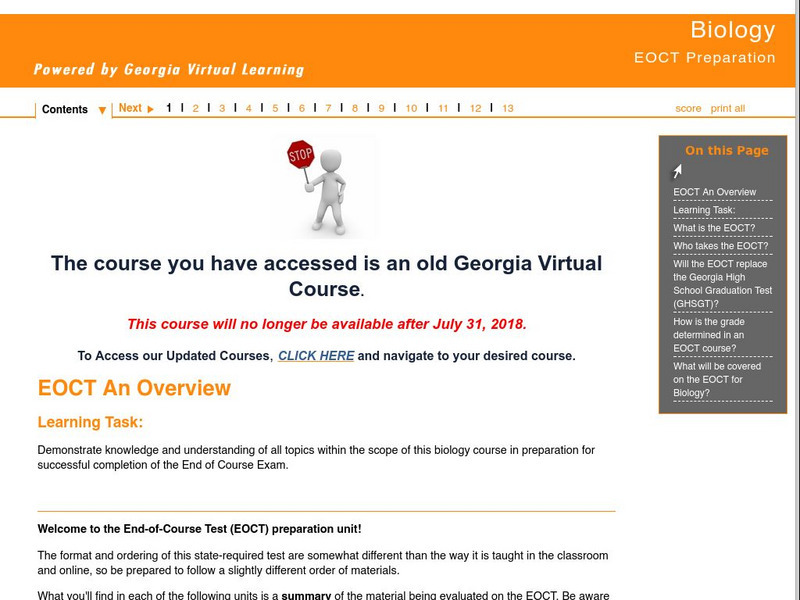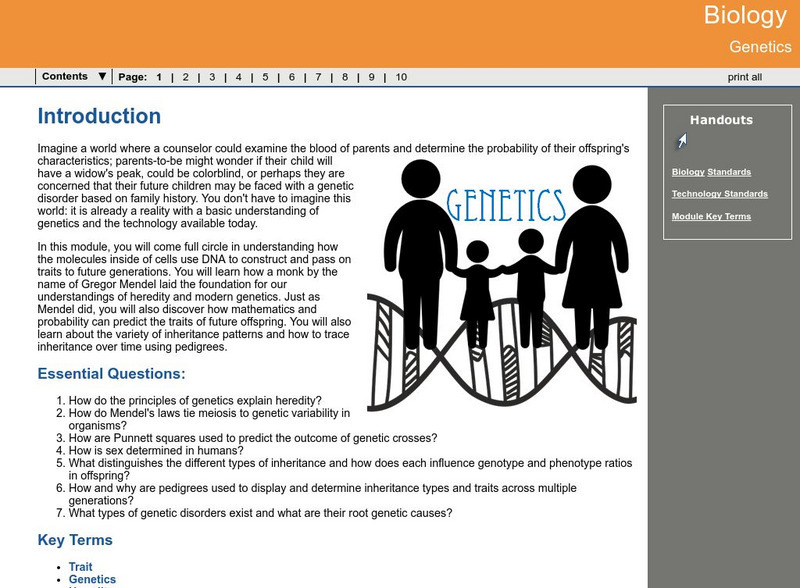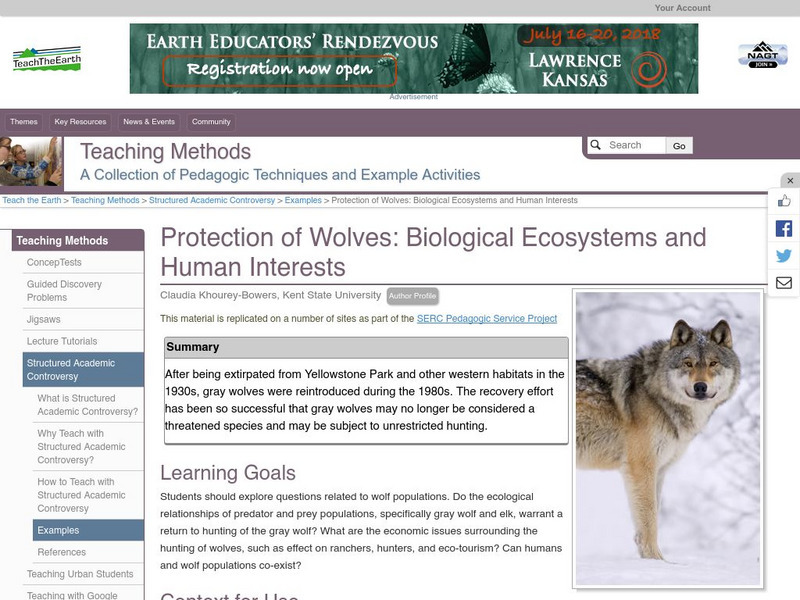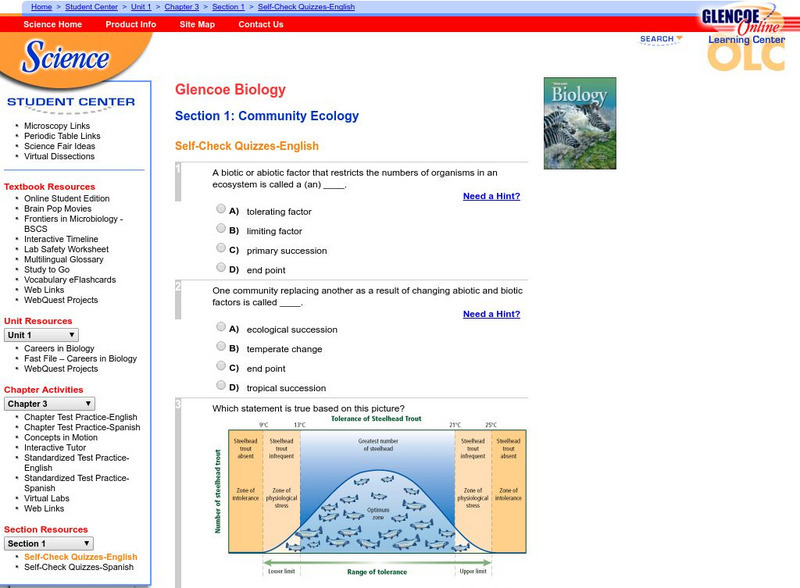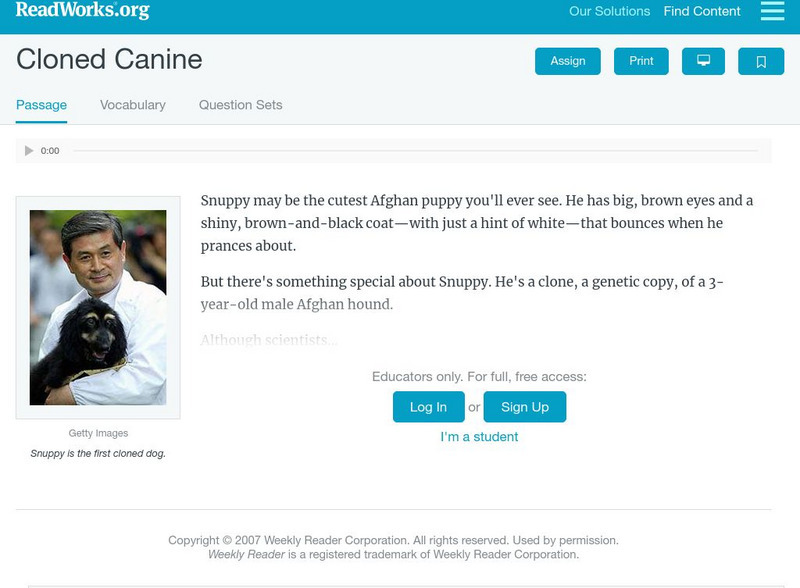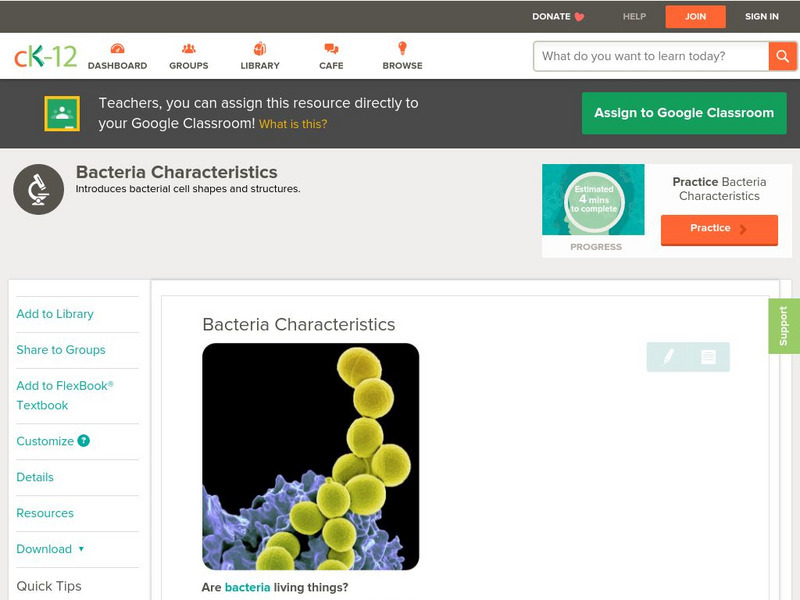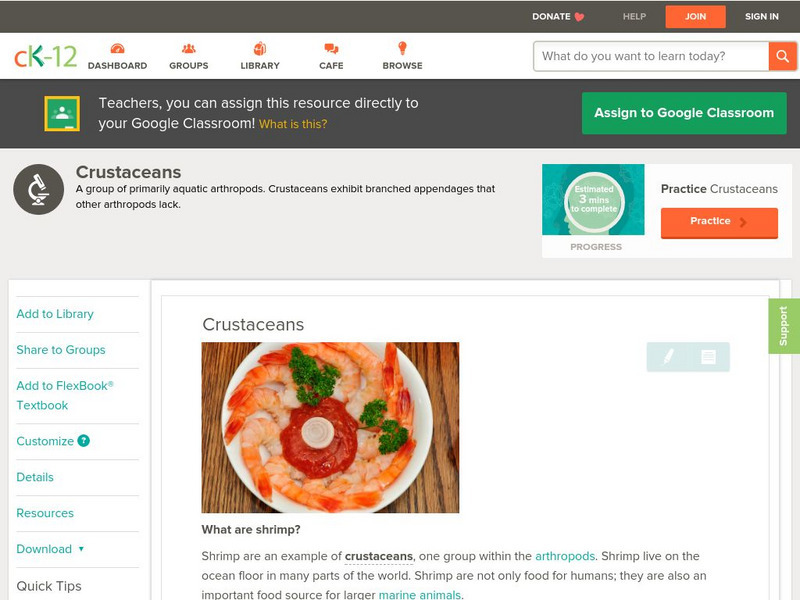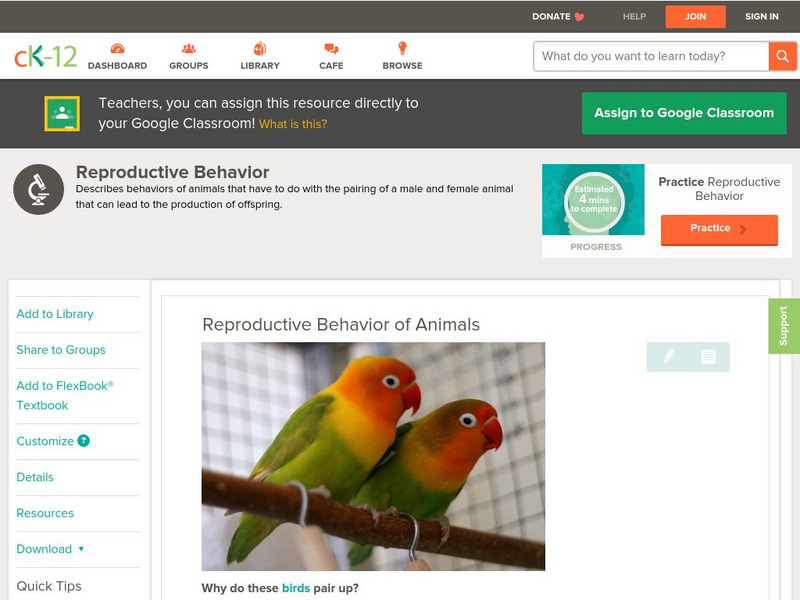CK-12 Foundation
Ck 12: Life Science: Succession
[Free Registration/Login may be required to access all resource tools.] Ecosystems are "dynamic." This means that ecosystems change over time. Both natural forces and human actions cause ecosystems to change. Learn more about succession...
Georgia Department of Education
Ga Virtual Learning: Biology: Eoct Preparation
Students participate in this comprehensive review to demonstrate knowledge and understanding of all topics within the scope of this biology course in preparation for successful completion of the Georgia End of Course Exam. It can also be...
Georgia Department of Education
Ga Virtual Learning: Biology: Genetics
Through informational text, interactive activities, practice problems, and video clips, students analyze how biological traits are passed on to successive generations.
Biology Corner
Biology Corner: Examining the Stages of Pond Succession
This activity investigates the stages a pond goes through as it becomes a meadow. Diagrams of each stage are provided.
CK-12 Foundation
Ck 12: Biology: Community Ecology Study Guide
This comprehensive study guide covers the main terms and concepts needed for a unit on community ecology.
Science Education Resource Center at Carleton College
Serc: Protection of Wolves: Biological Ecosystems and Human Interests
Learners will exam the different perspectives on why the gray wolf was reintroduced into many western states during the 1980s, the success of the reintroduction, and the benefits and problems from the recovery of the gray wolf...
McGraw Hill
Glencoe Biology: Community Ecology: Self Check Quiz
Answer these five multiple-choice questions about community ecology. After answers are submitted, students can review their mistakes.
Georgia Department of Education
Ga Virtual Learning: Biology: Ecology Ii
Through a series of multi-media learning activities, students will assess the dependence of all organisms on one another and the flow of energy and matter within their ecosystems.
BioMan Biology
Bio Man Biology: Angry Aliens: Ecology
Teach aliens about ecology as you play this game, and review your own understanding in the process. Topics covered include levels of organization, ecological relationships, nutrition and energy, cycles (water, carbon, and nitrogen), and...
Science Buddies
Science Buddies: Project Ides: Propagate Plants Without Using Seeds!
This plant biology science fair project that explores factors involved in successful propagation of plants using plant division instead of seeds. The Science Buddies project ideas are set up consistently beginning with an abstract,...
Smithsonian Institution
Smithsonian National Zoo
Here is the National Zoological Park right at our fingertips. Students will find many things to explore at this colorful and engaging site. Any study of animals will have a successful start here. Chances are students can catch their...
BiologyWise
Biology Wise: The Meaning of Gametic Isolation
Gametic isolation is a form of reproductive isolation that prevents successful breeding between two different species. The mechanism is explained here and examples are provided.
Open Curriculum
Open Curriculum: Mendel's Investigation
Students identify how Mendel's study of science and math was important to his success in research.
Read Works
Read Works: Cloned Canine
[Free Registration/Login Required] An informational text about the first scientists to successfully clone a dog. A question sheet is available to help students build skills in reading comprehension.
CK-12 Foundation
Ck 12: Life Science: Bacteria Characteristics
[Free Registration/Login may be required to access all resource tools.] Bacteria are the most successful organisms on the planet. They lived on this planet for two billion years before the first eukaryotes and, during that time, evolved...
CK-12 Foundation
Ck 12: Life Science: Angiosperms
[Free Registration/Login may be required to access all resource tools.] Angiosperms, in the phylum Anthophyta, are the most successful phylum of plants. Angiosperms evolved the structure of the flower, so they are also called the...
CK-12 Foundation
Ck 12: Life Science: Crustaceans
[Free Registration/Login may be required to access all resource tools.] Crustaceans are a large group of arthropods, consisting of almost 52,000 species. The majority of crustaceans are aquatic. A few groups have adapted to living on...
CK-12 Foundation
Ck 12: Life Science: Cloning
[Free Registration/Login may be required to access all resource tools.] Cloning is the process of creating an exact replica of an organism. The clone's DNA is exactly the same as the parent's DNA. Bacteria and plants have long been able...
CK-12 Foundation
Ck 12: Life Science: Reproductive Behavior of Animals
[Free Registration/Login may be required to access all resource tools.] Some of the most important animal behaviors involve mating. Mating is the pairing of an adult male and female to produce young. Adults that are most successful at...
Cornell Lab of Ornithology
Cornell Lab of Ornithology: Nest Watch: Nest Monitoring Manual [Pdf]
NestWatch is a citizen science project where the average person can assist scientists in observing and cataloguing bird populations to track how successful they are at nesting and reproducing. This 36-page package provides information...
Soft Schools
Soft Schools: Biodiversity Quiz (Ecological Problems)
Take an interactive quiz over ecological problems affecting the environment. After completing the quiz, check your score, and then revisit any incorrect question for further review.
Oswego City School District
Regents Prep: Ecosystems/communities
Abiotic factors vary in the environment and determining the types and numbers of organisms that exist in that environment. Factors which determine the types and numbers of organisms of a species in an ecosystem are called limiting...
Other
The Evidence for Evolution
These pages are part of a site called "Evolution," that accompanies a textbook by the same name. Mark Ridley is the author, and in this section he discusses the evidence for evolution.
ClassFlow
Class Flow: Punnett Squares
[Free Registration/Login Required] Students will use Punnett Squares to analyze how biological traits are passed on to successive generations.



